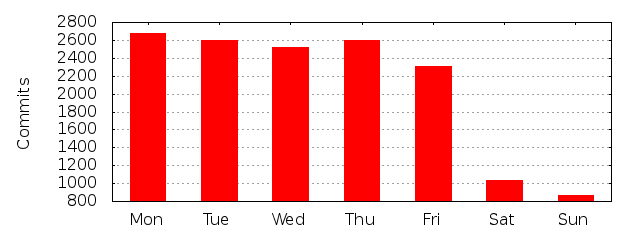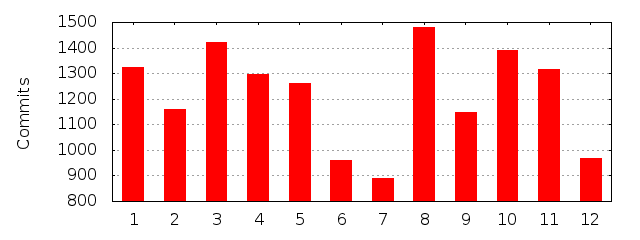At the end of the year I thought it would be interesting to have a look back over the past twelve months and see what the biggest changes in the curl project were and what the most important bug-fixes were etc. I’ve turned into a little mini series of blog posts. The top-3s. First out, the top-3 changes.
Top-3 changes
In total I counted 29 notable changes brought during 2011. The most significant ones in my view are:
Change 1 – fancier protocol support in proxy strings
This may sound trivial, and the code certainly is, but with this change suddenly a lot of applications that use libcurl got better proxy support without having do anything at all. Previously the application would have to set what protocol type the proxy it would use is, even though libcurl has supported having the proxy specified as an environment variable for ages.
Having only the proxy name was useful but limiting. With this new change you can specify proxy type or rather proxy protocol by prefixing the proxy name like “socks4://magic-proxy.example.com” if you want a SOCKS4 proxy. libcurl now supports socks4, socks4a, socks5 or socks5h used as prefixes as well as http.
Change 2 – allow sending “empty” HTTP headers
Another minor change in code but possibly larger impact in usefulness for applications. We introduced a way for applications to change internal headers and to add new ones ages ago. We (or rather I) then made the choice that if you’d provide a header with only the name and a colon, that is with no contents on the right side, it would delete the internal header. That was not a clever move as later on people have wanted to add “blank” or “empty” headers that look exactly like that, but libcurl has then refused to.
There have been some more or less hackish work-arounds to trick libcurl into allowing an empty header, but now finally we introduce a nice and clean way for applications to pass in these kinds of empty headers:
Pass in an empty header that instead of a colon has a semicolon! This is an otherwise illegal header that wouldn’t make sense, but libcurl will use that as a trigger that an empty header should be used and it will then replace the semicolon with a colon and things will be fine.
Change 3 – Added support for cyassl and axTLS
Proving that libcurl moves forward and into more and more markets, the number of supported SSL libraries grew to 7 this year. The all new cyassl backend that replaced the previously done yassl backend that was using cyassl’s former OpenSSL emulation layer. Now we’re using the native and pure API and things are much cleaner. The possibly smallest available TLS library axTLS also got support.
Not all backends and not all SSL libraries are the same or support the same set of features, but then libcurl is used in many different scenarios and use cases and this way we offer more options to more users to craft libcurl for their particular needs. Our internal SSL backend API has managed quite well and proves to have been a worthy change. Adding support for yet another SSL library within libcurl is actually not a lot of work.
Change 4 – TSL-SRP
You may think number 4 of a top-3 list is weird, but I couldn’t cut it off here! =) TLS-SRP has been waiting in the shadows for so long and all of a sudden two of the major SSL libraries have support for it in released versions and libcurl got support for using these features in both libraries during 2011.





 I’ve been an open source and free software hacker, contributor and maintainer for almost 20 years. I’m the perfect stereo-type too: a white, hetero, 40+ years old male living in a suburb of a west European city. (I just lack a beard.) I’ve done more than 20,000 commits in public open source code repositories. In the projects I maintain, and have a leading role in, and for the sake of this argument I’ll limit the discussion to
I’ve been an open source and free software hacker, contributor and maintainer for almost 20 years. I’m the perfect stereo-type too: a white, hetero, 40+ years old male living in a suburb of a west European city. (I just lack a beard.) I’ve done more than 20,000 commits in public open source code repositories. In the projects I maintain, and have a leading role in, and for the sake of this argument I’ll limit the discussion to 

